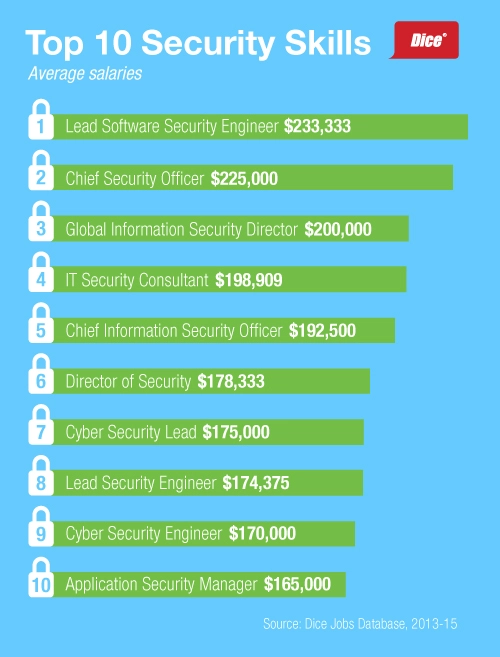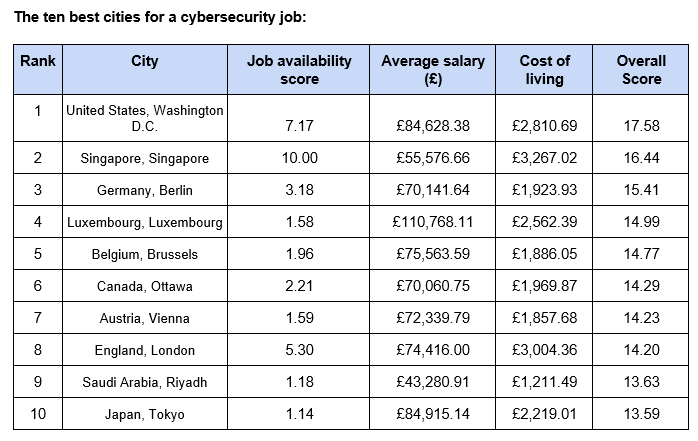How to kick start your career in cybersecurity – Top professions to consider
Are you looking to break into the world of cybersecurity and find the right professionals to fit your skills and interests? With the ever-growing need for cybersecurity professionals across the globe, now is the perfect time to take the plunge and jumpstart your career. While many people may be intimidated by the tech-savvy nature of the field, there are many jobs available for those who are passionate and eager to learn. From entry-level positions to more professional roles, there are many top professions to consider when starting and advancing in a career in cybersecurity. With the right education, training, and certifications, you can be on your way to becoming a successful cybersecurity professional in no time.
What is Cybersecurity?
Cybersecurity is an environment of risk management, compliance, and safeguarding critical information and/or infrastructure. Cybersecurity often describes the implementation of technology, policies, and procedures designed to protect networks, computers, software, and other electronic devices from cyber attacks. It is critical to understand that cybersecurity also applies to the protection of networks and systems that are connected to the internet, such as cloud-based servers. Cybersecurity professionals use various tools and techniques to protect computers, networks, and data from online attacks. They may install security patches on computer systems or write code to create new software with security features. They also may oversee cybercrime investigations or work with law enforcement agencies to solve cyber crimes. But what are some security professions to consider entering, ranging from entry-level to higher seniority positions?

Cybersecurity Engineers – PenTesters and Ethical hacking
If you’re interested in computer forensics and security testing and want to prevent and solve cybercrime, then this might be your path. Cybersecurity engineers or specialists are responsible for identifying vulnerabilities and weaknesses in computer systems and networks and designing solutions to protect them from cyber threats. This is usually done through “pen testing,” which is short for “penetration testing.” Much of the work these professionals conduct is based on critical thinking, problem-solving, and analytical skills. There are many specializations within this field, such as network security, software security, penetration testers and more, starting from entry-level positions to higher seniorities.
Cybersecurity Analysts
If you have strong analytical skills, enjoy working with data, and want to make a difference by protecting data and systems from cyber threats. Cybersecurity analysis might be the right path for you. Cybersecurity analysts collect and analyze information to identify cyber threats, vulnerabilities, and risks to computer systems and networks. This can include data from external threats, such as hackers or threats from within the organization. Analysts also may be responsible for managing security incidents and breaches in the organization. Analysts usually work closely with other cybersecurity professionals, such as engineers, architects, and specialists.
Cyber Security Architects
If you’re interested in managing networks, computers, data, and security strategies and policies, you may want to consider cybersecurity architecture as a profession. Architects are responsible for designing and implementing security solutions and architectures for organizations to protect them from cyber threats and vulnerabilities like data breaches or viruses. This includes everything from developing and testing new tools or software to managing the implementation of new security policies. This type of position requires a higher level of expertise in the cybersecurity field and a higher level of seniority to‘ land it’.
Cyber Security Consultants
If you’re interested in working with organizations and assisting them with their cybersecurity initiatives, then a career as a cybersecurity consultant may be an excellent fit for you. Cyber consultants’ position is referred to as a high seniority profile. They usually work with organizations that want to assess their current cybersecurity posture and create a plan to improve their existing security technology, policies, and practices. This can include everything from writing reports to meeting with stakeholders and clients to determine how to enhance their security posture.

Education, training, and certifications needed to pursue a cybersecurity career
There are several different paths to pursue when entering the world of cybersecurity. However, it is essential to note that education and training are critical for success in this field. No two days are the same in this field, and similar to the medical field, you could have one day where you are dealing with a computer virus and the next day be handling a breach of data or intellectual property.
The sheer volume of information you need to know to be successful in cybersecurity is vast, but luckily there are many ways to learn. Whether you choose online courses, books, or other resources, please keep in mind that you will need to stay updated with the latest threats, best practices, and technologies as they constantly evolve. If you want to pursue a cybersecurity career, ensure you have the proper certifications and training to prove that you are qualified for the job. This will help you stand out when applying for positions and interviews. (Check out our webinar on how to build your dream team of security professionals)
Here are a few courses recommendations on where to start your studying:
Introduction to Cyber Security Foundation by InfoSec
CyberSecurity Attack and Defense Fundamentals Specialization by EC Council
Introduction to cyber security tools and attacks by IBM
ELearn Security Junior Penetration Tester (eJPT) Course and Certification
Cybersecurity salary expectations
As with many other occupations, the bottom line is that it all comes down to supply and demand. The demand for cybersecurity professionals is expected to grow significantly over the next few years, and even more so as organizations and businesses continue to rely on technology to run their operations. Organizations of all sizes are increasing their cybersecurity budgets, and during 2021 they reached a budget of a staggering $1.7 trillion globally on information security. This will likely lead to higher salaries for cybersecurity professionals. According to Payscale, the average salary for an entry-level cybersecurity professional is $47,000 annually, whereas that of a senior is thought to reach 2023 nearly $197,000 annually.
Cybersecurity is an exciting and ever-growing field. With its rapid evolution, and the business requirements growing more and more every day, there is always something new to learn and new techniques and technologies to apply to daily tasks. If you are passionate about this technology sector and want to make a difference by protecting networks and data from cyber threats, consider pursuing a career in cybersecurity. So, if you plan to become a security engineer, you should start investing in yourself now.



